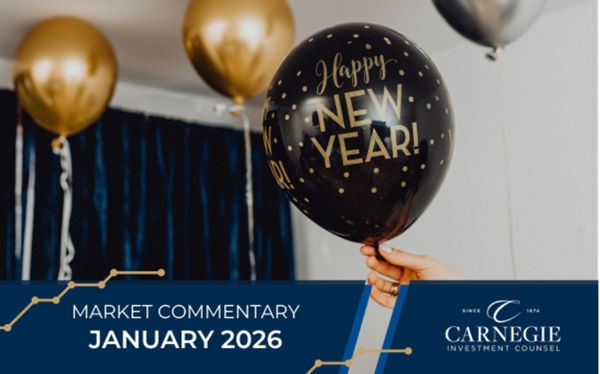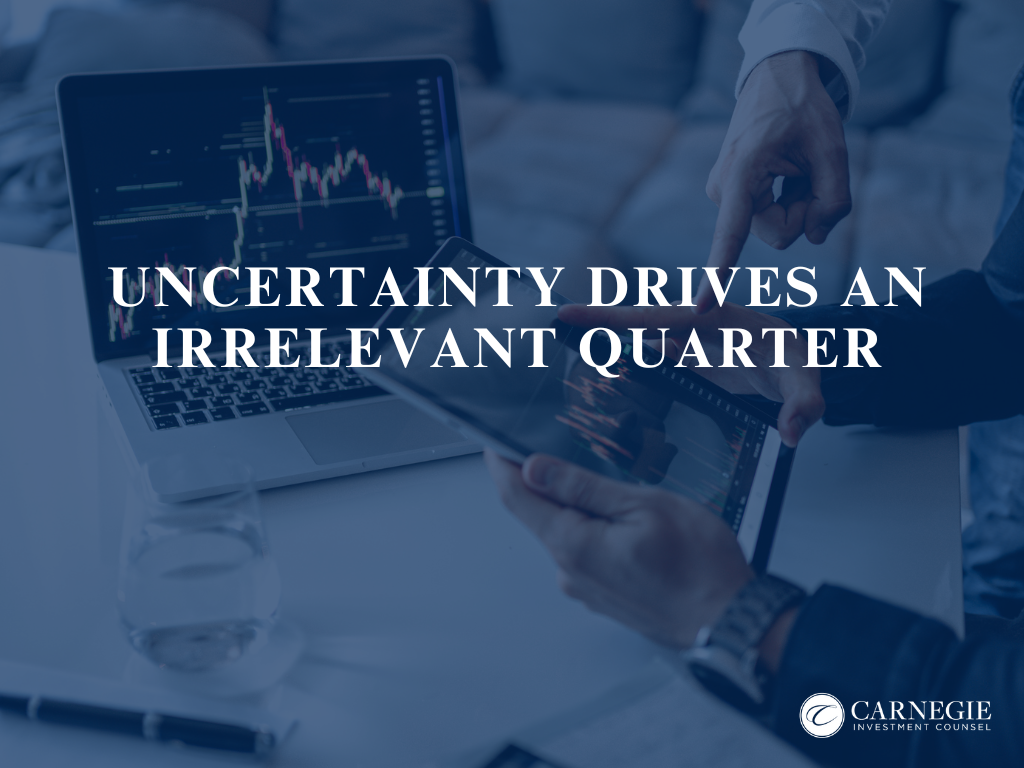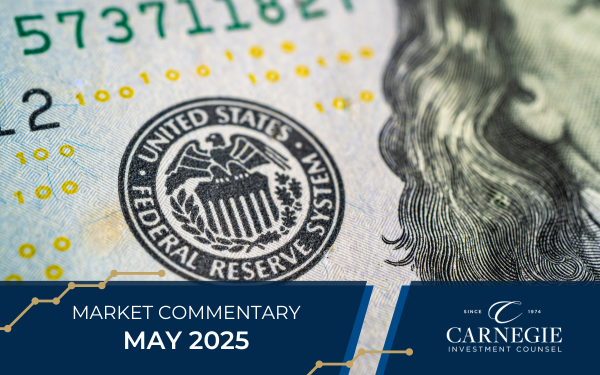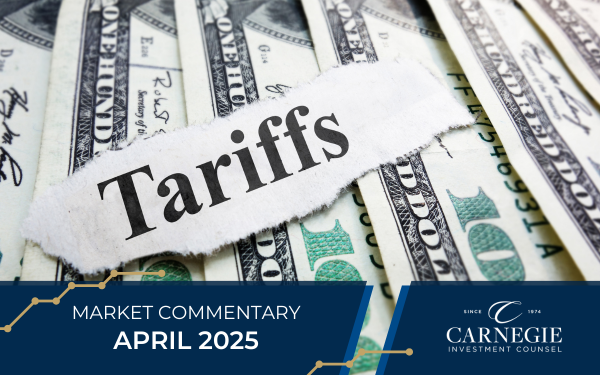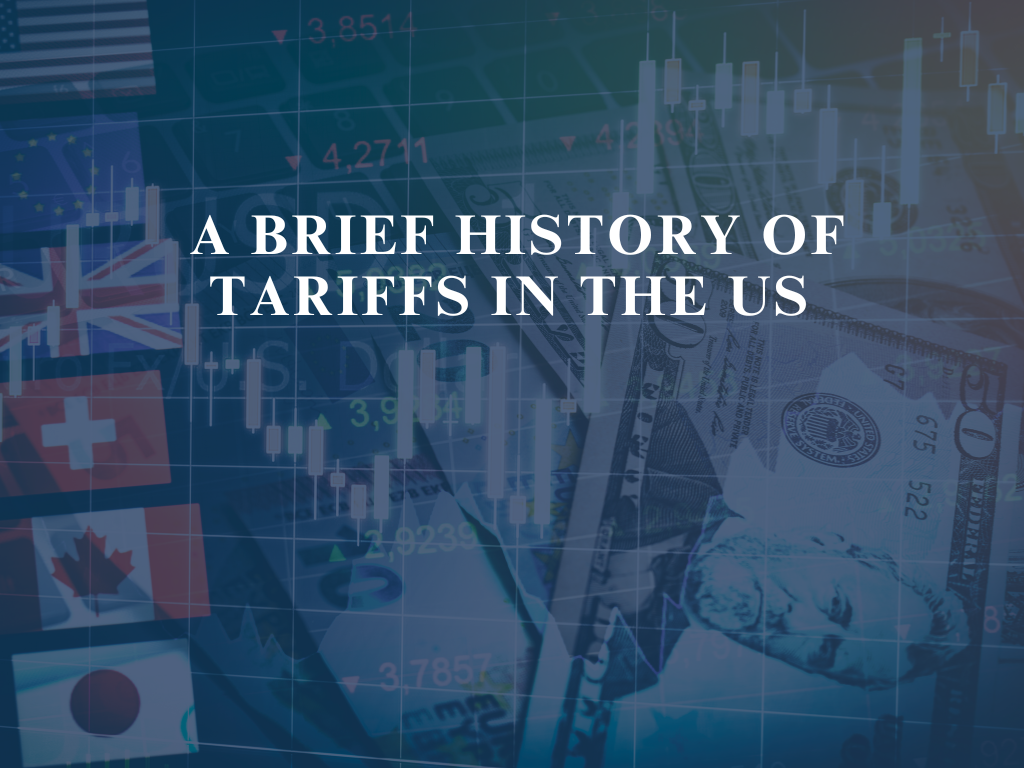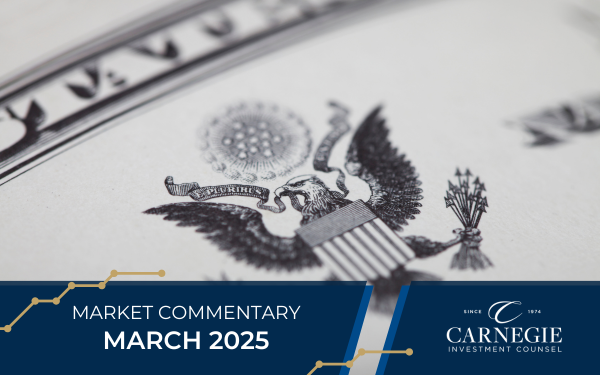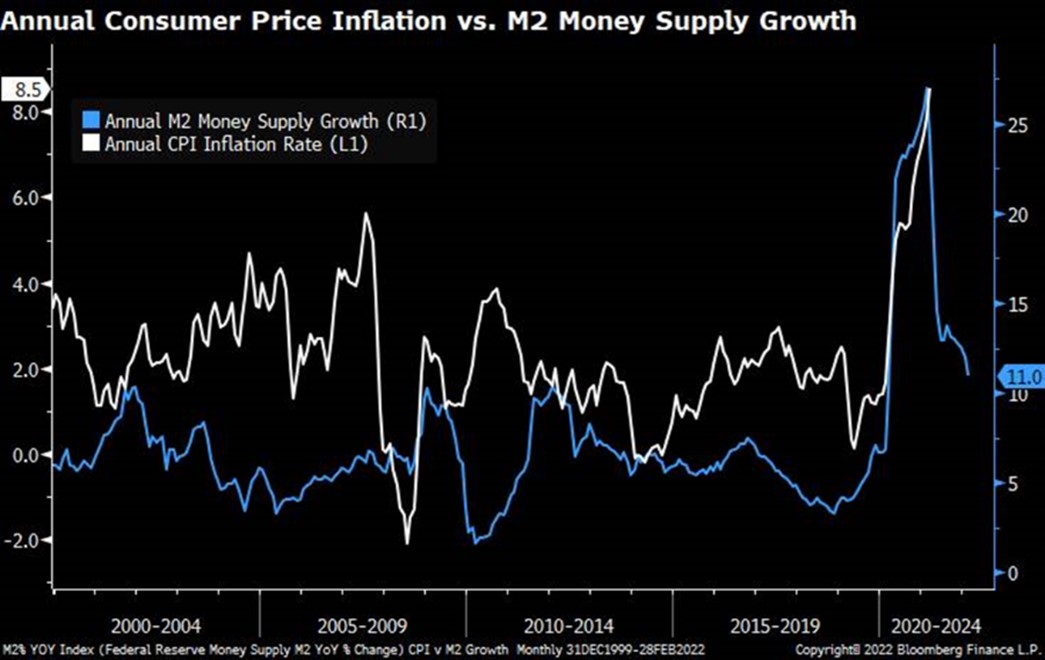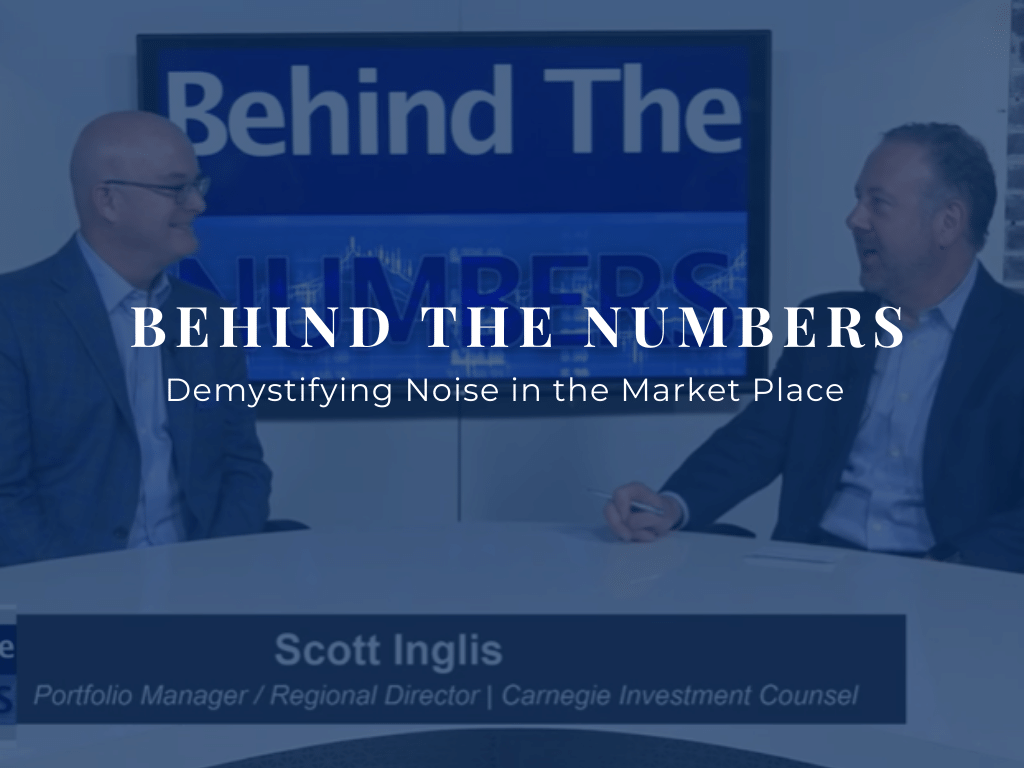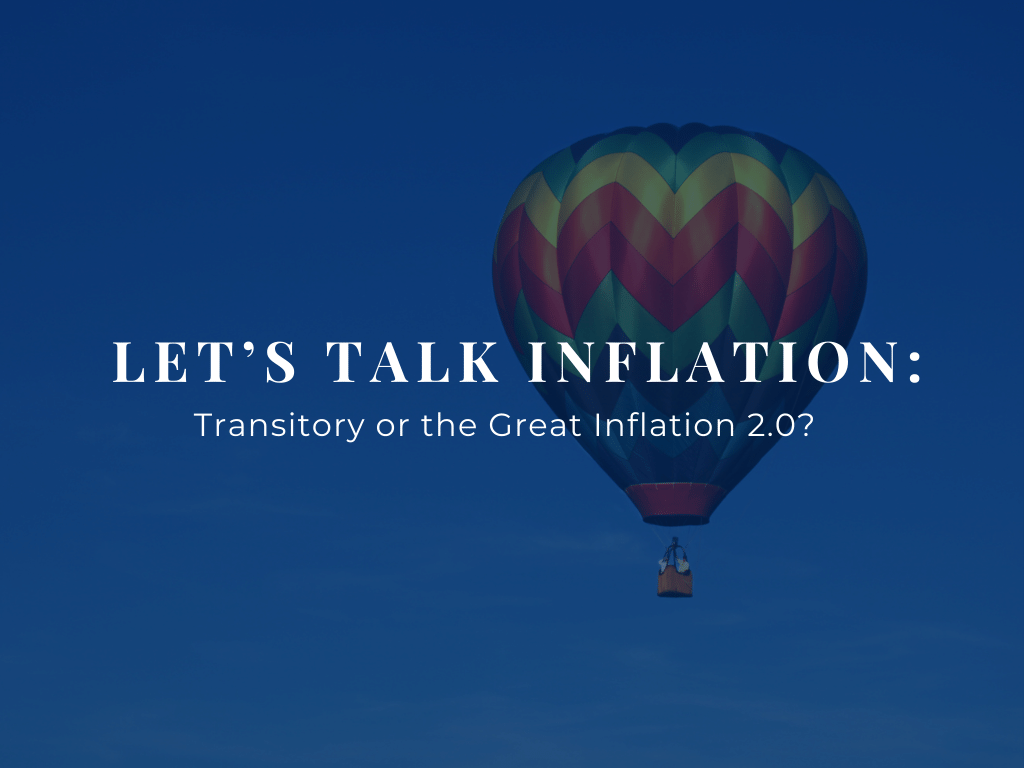As we embark on 2026, we at Carnegie reflect on a resilient 2025 that saw the S&P 500 deliver solid gains amid headwinds such as tariffs and government budget cutbacks. The market tested many investors through sharp headlines portraying market news and pullbacks as dramatic declines, such as "Dow plummets 500 points," often representing less than 1% moves.
Our take? Headline-driven commentary is designed to elicit an emotional response (to drive clicks!), but it is often the best time to remember your time horizon. Over longer horizons of 1, 5, or 10 years, these fluctuations pale in comparison to the power of compounding in quality investments. At Carnegie, we remain focused on identifying continual compounders striving to build wealth steadily through economic cycles.
As we enter 2026, maintaining discipline amid noise remains key, emphasizing long-term horizons over reactionary moves. Below, we share a few larger themes we are watching as we turn the page on 2025.

